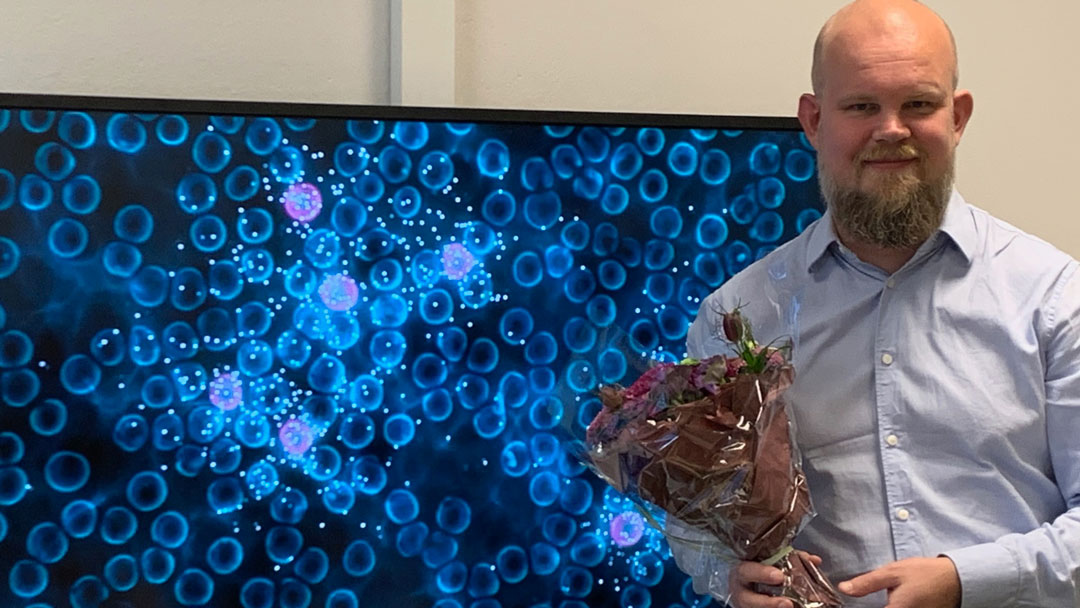Joakim Jaldén – Congratulations on Winning the Research Grand Prix semifinal in Stockholm
– Professor of Signal Processing at KTH EECS

Joakim Jaldén – Congratulations for winning the semi-finals of the Research Grand Prix in Stockholm, an event held in conjunction with ForskarFredag.
ForskarFredag is part of European Researchers' Night and Sweden's most widely spread science festival with activities all over Sweden on the last Friday and Saturday in September.
How does it feel?
Excellent of course. I am a competitive person, and I find a lot of pleasure in simply trying hard to excel at something I have not tried before.
How did you experience the semi-final?
The wait before going on stage was one of the most nervous experiences in a long time. However, once I got started and got to see excitement in the faces of audience members, it was sheer adrenaline filled joy.
How many hours have you practiced?
It is hard to tell, but the benefit of a 4 minute presentation is that you can give it to yourself anywhere and anytime. Adding up the numerous presentations given to myself in the shower in the morning, while making breakfast, silently on the bus, and so on, I would guess that somewhere around 50 hours is not too far off the mark.
Now you have achieved to make it to the final. How do you set up the training for the final?
Besides continuing to give the presentation to myself over and over, I believe that the key to further step up my game is to find more audiences to test it on and to collect feedback from. Thus, if anyone who reads this would be willing to help out by spending 4 minutes to listen to my pitch, I would greatly appreciate your help.
Would you recommend your colleagues to do this?
Absolutely. A direct benefit is that you will improve your own communication skills by being pushed out of your comfort zone, but there is also something deeply satisfying about knowing that you may help get the next generation of researchers interested in your subject area.
What have you learned about communicating your research to the public?
The competition has been a great practice in identifying the key points that I believe are the most important for me to convey to my audience, and how to build up to these and make them interesting to someone with very little knowledge of what we do as scientists. Once the key points are clear, it becomes much easier to scale away the details that may be important to ourselves and our peers, but which matters little to the general public.
Do you have some advice you can share with your colleagues?
It may be more of an encouragement than an advice, but I wish to tell you to give it a try. It is certainly different than our usual day to day activities, but if you are anything like me, you will enjoy it.
